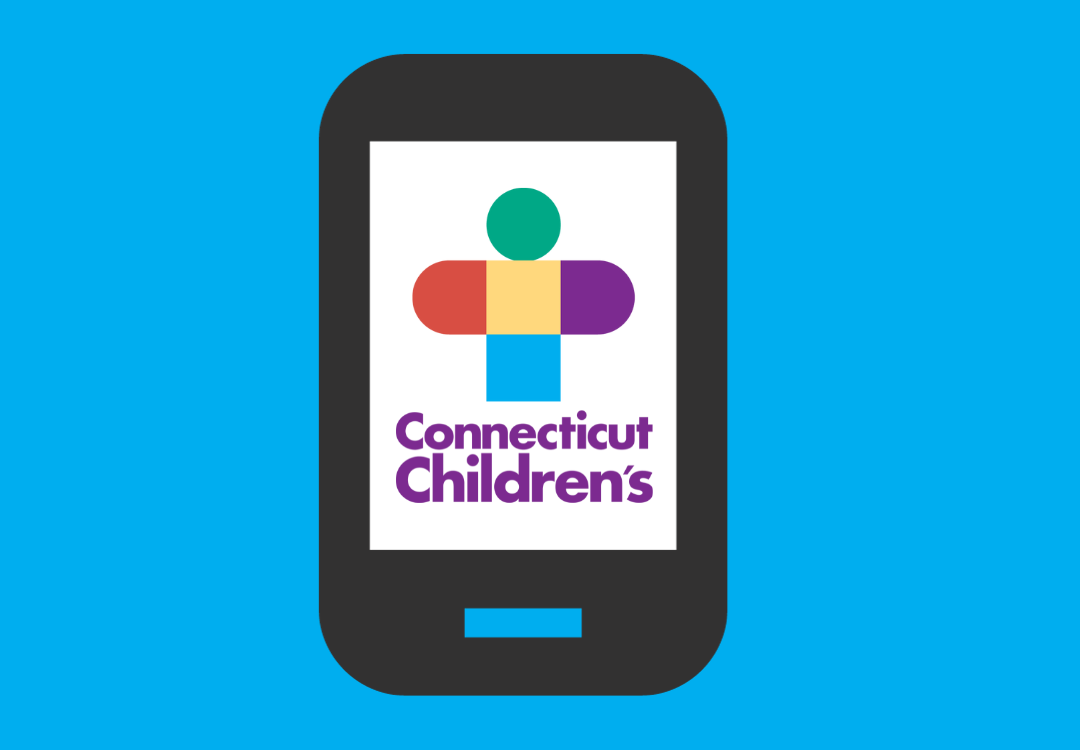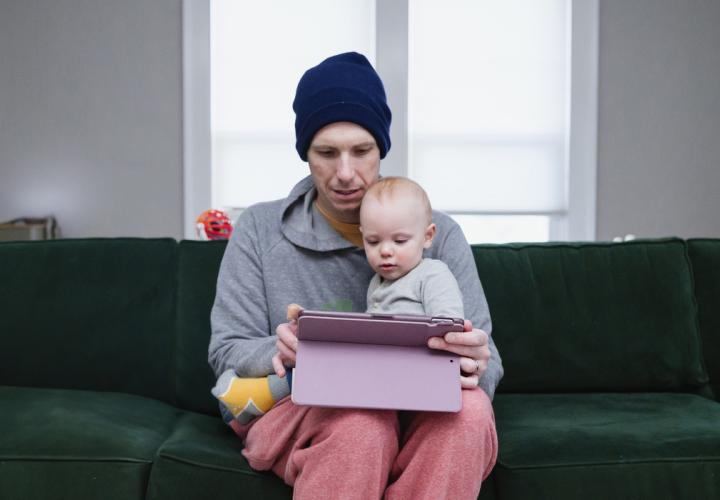Same Care, Only Virtual
Can't make it here or prefer to stay put? Connecticut Children's Virtual Health allows you to see one of our pediatric specialists from the convenience of your own home or another secure location using your smartphone, tablet or personal computer. You can use Video Visits with many of our pediatric providers for certain types of appointments and services. This service makes it easier than ever to chat with your child’s provider using secure technology, whether you’re at home or on the go!
Scheduling and Preparing for Your Video Visit
- Call your specialty to request a Video Visit. You can change existing appointments to Video Visits, too.
- Ask a team member to confirm you have MyChart access.
- Download Connecticut Children’s mobile app and the Zoom Cloud Meetings app.
- Review our step-by-step instructions and make sure your device meets our technical requirements (English | Español)
- Up to three days before your Video Visit, log into MyChart, click “eCheck-In” and confirm a few details.
- On the day of your Video Visit, find a private, well-lit area. Use a laptop or mobile device with a camera, microphone and strong Internet connection.
- Within the Connecticut Children’s mobile app, open MyChart, click “appointment details” and select “begin visit.”
Specialty Phone Numbers
Frequently Asked General Questions
Right now, Video Visits are an important way to minimize your family’s risk of COVID-19 exposure by connecting you and your child to our pediatric experts from the convenience of home. They save time that you would’ve spent traveling to and from an office, and eliminate barriers like transportation. Most visits can be completed in 15 minutes or less, and your information is kept secure and confidential.
Absolutely. Video Visits are available for all patients, both new and established. If your child is a new patient, we’ll just need your help gathering the same important background information as an in-person visit, like medical history from your pediatrician. Our team will walk you through what’s needed when you call to schedule.
In many cases, yes! Call the specialty office your child’s existing appointment is with to find out.
Our team will advise you on this when you call to schedule. While not all visits can be done virtually, via Video Visit, many can – which will minimize your family’s risk of COVID-19 exposure. We’ll make sure that’s the right choice for you and your child when you call.
Yes! A Video Visit is an ideal way to address concerns about your child and coronavirus (COVID-19), as well as many other medical questions. Your provider can often do enough of a visual exam on your child to resolve your concerns or to decide appropriate next steps without you ever having to leave your home. Start with a call to our COVID-19 Hotline (833.226.2362) with questions, and if a visit is needed our hotline staff can schedule one with our Infectious Disease team.
A Video Visit is very similar to the experience of visiting your child’s doctor in person. You’ll have a set appointment time, and you and your child will have face-to-face time with your provider, just as you would in an office visit. Your child’s doctor has access to your child’s medical record to review their medical history and symptoms, and can prescribe most medications if needed. Appointments take the same amount of time and include our same exceptional standards of care.
Virtual Visits can be used for a wide variety of health services, from evaluating respiratory symptoms to assessing gastrointestinal problems to treating rashes to managing follow-up visits, to name just a few examples. For the full list of Connecticut Children’s specialties now offering Video Visits, see below.
Yes, most medications can be prescribed over Video Visit. (There are special rules for some controlled substances.)
For most Video Visits, you’ll need to be physically located in the state of Connecticut. (There will be a small number of exceptions to this; our team will confirm with you when scheduling.) We ask that you find a private, safe, well-lit setting where your child’s personal details can’t be overheard.
Frequently Asked Technical Questions
Yes. You’ll log in to your Video Visit via our patient portal, which ensures that your visit will be HIPAA-secure and encrypted. Our patient portal is accessible online or by downloading the Connecticut Children’s mobile app.
As long as it’s a strong, stable connection, it’s OK for you to be connected to a public Wi-Fi network for your Video Visit. But please set yourself up in a private space such as your home or vehicle, so that your child’s personal details can’t be overheard.
Not at all. Just make sure your mobile device or computer meets the device requirements, and follow the step-by-step instructions in our Video Visit Patient Guide. To ensure that your Video Visit is successful, it’s important that you use a strong Internet connection (not cellular data), either via Wi-Fi or Ethernet.
At the beginning of your visit you will be asked for your phone number in case you are disconnected for any reason. Your provider will call you back to resume the visit. If for any reason a Video Visit does not address your concerns, you can schedule an in-person visit with the care coordinator.
Need Technical Assistance?
For technical difficulties with the MyChart site or your video connection, please call our MyChart Support Line at 860.837.6500 or mychart [at] connecticutchildrens.org (email us).

Download Connecticut Children’s Mobile App
Connect to Video Visits using Connecticut Children’s mobile app. You’ll also get easy and secure access to your child’s medical record, can request prescription refills, pay bills online, and use the app’s tools to help you prepare for in-person visits.
Frequently Asked Insurance & Billing Questions
Many insurance plans cover Video Visits; please call your insurance company to ask about your specific plan and coverage. Upon scheduling, our financial counselors will review your eligibility and only contact you if we determine that video visits are not part of your benefit plan. (Note: Your insurance may refer to these kinds of visits as “telemedicine,” “telehealth” or “virtual visits.”)
Private insurance, including exchanges, along with government payers like Medicare, Medicaid and Tricare, all cover Video Visits. Employer-sponsored plans may have specific benefit plans that do not cover Video Visits, so please review your benefit plan package for coverage determination.
While most private insurers are waiving member cost shares for services related to COVID-19 treatment, cost shares and telemedicine benefits are ultimately determined by your insurance carrier. We recommend scheduling your appointment and, during our eligibility check, we will be able to let you know if you have any potential out-of-pocket expense. If you do, we have a number of financial counselors ready to work with you to see which additional discounts may apply or to make payment arrangements.
You will not be charged if it is determined that your child cannot be treated virtually, and is subsequently seen in-office for the same reason.
